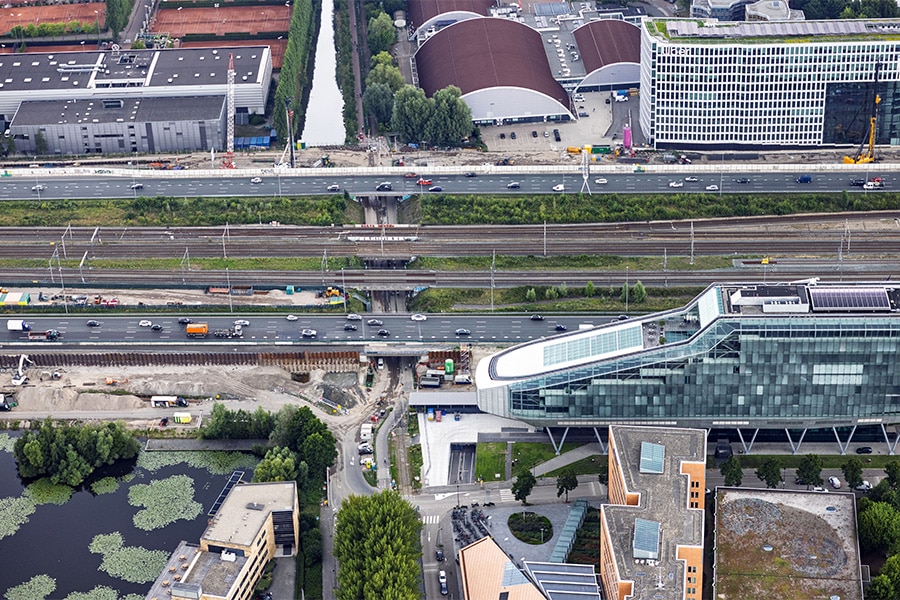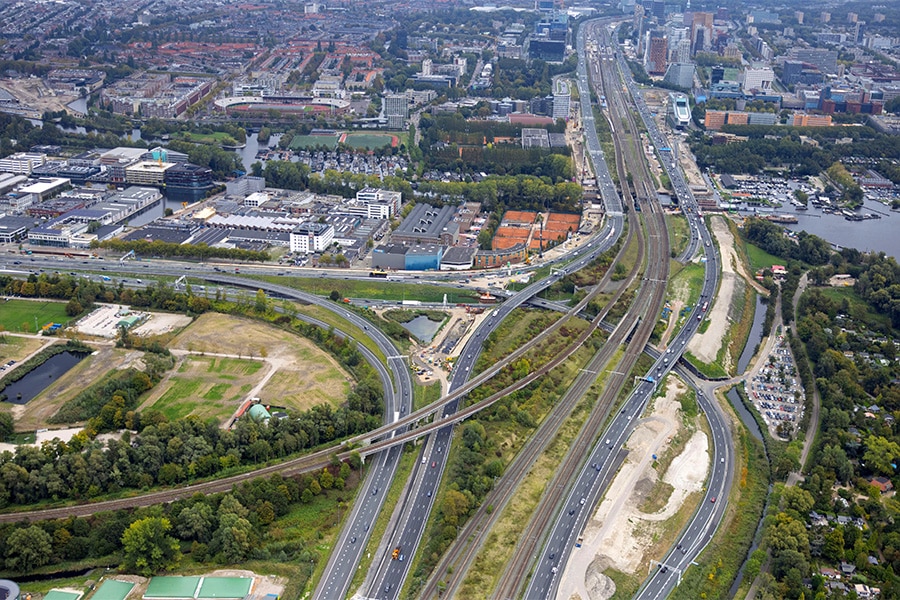
The future of asphalt in a shrinking market
The asphalt market is shrinking considerably, at least in terms of volumes. Government spending is falling sharply, which means that the sector is suffering a major blow. Ron Wesseling, trade group manager for Bituminous Works at Bouwend Nederland, is clearly worried. Despite these "headwinds," he does see that the asphalt sector is continuing to focus on sustainability.
In the Bituminous Works Trade Group, we decided together over a year and a half ago that the processing temperature of asphalt would be significantly reduced, says Ron. "It is an important intervention to make a substantial contribution to the sustainability issue as a sector. This means that hot mix asphalt will be slowly phased out and from Jan. 1, 2025, hot mix asphalt will be the norm. We are now in an extensive and intensive process to shape this. For example, guidelines must be drawn up that the 'new' asphalt, which is processed at a lower temperature of 140 degrees Celsius, must meet."
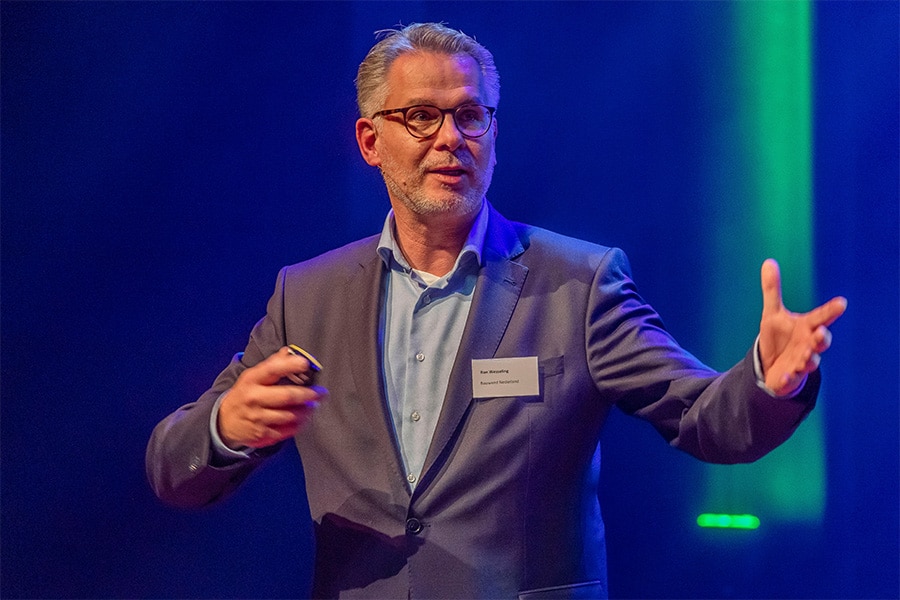
Transition Team
Today's asphalt is not for sale tomorrow, Ron emphasizes. "We find that many road managers find that quite exciting. And we understand that. Know that besides Rijkswaterstaat, municipalities, provinces and water boards are also road managers. And they have to be involved in these new developments in order to be able to put the right call for tenders on the market. Now they have a kind of certainty because the asphalt product has remained unchanged for many decades. At the same time, together we have the social task of initiating a piece of sustainability. To this end we have formed a so-called transition team together with Rijkswaterstaat, a number of provinces and municipalities. The aim is to create awareness on the one hand and to develop guidelines on the other, so that clients can confidently apply new solutions with low-temperature asphalt from 2025."
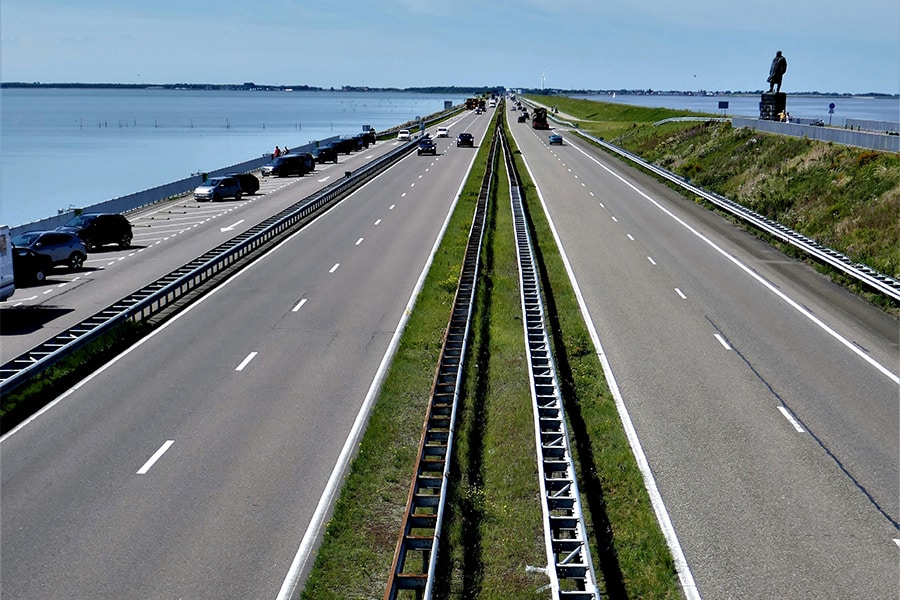
Biobased
A major focus of the transition team is to consider biobased applications. "There are already some roads where bitumen has been partially replaced by a lignin-like product or another biobased material," Ron knows. "These developments are going further and faster, and we only welcome them. At the same time, we also have to realize that the raw material of the future is already literally on the street and needs to be handled properly. Of course that's already happening, because all the asphalt being produced now, 40% consists of old asphalt, milling waste." Why isn't that percentage higher? Quite simple, according to Ron. "There is no more milling waste available, as the acreage is still being expanded.
However, successes have also been achieved here, because by constructing roads differently, less asphalt is needed to construct the same surface area of road. This trend will continue, but it is not infinite. After all, you need a certain amount of asphalt to create a stable road that will last for years."
Further reduction in temperature
So the asphalt industry is certainly not sitting still, that much is clear. "Currently there is also a heavy focus on electric equipment, but it is only part of the whole sustainability issue," Ron believes. "The biggest battle is being made with an alternative for heating the asphalt, for example with hydrogen instead of natural gas, but that too requires enormous adjustments." According to Ron, the temperature of the asphalt will eventually drop even further. "That, of course, brings yet other challenges, but it is the next step after the next five years."
Asphalt Day 2023
Sustainability is thus the hot topic within the asphalt industry and also during Asphalt Day 2023. CO2 targets, recycling and other topics that contribute to sustainability are the talk of the day in the world of asphalt. During Asphalt Day 2023, this issue will be highlighted from multiple angles. In addition to a substantive program, the Asphalt Day is mainly about meeting each other. Enough reasons to come to Amersfoort on December 12. In addition to an extensive exhibition of dozens of companies with the latest developments in the industry, the organization promises a wide range of speakers. This makes the Asphalt Day the best opportunity to gain knowledge and share insights with others. The exhibition will be open from 9 a.m. and around 3:30 p.m. the congress will be closed with a networking reception and the opportunity to discuss the latest developments with the exhibitors.
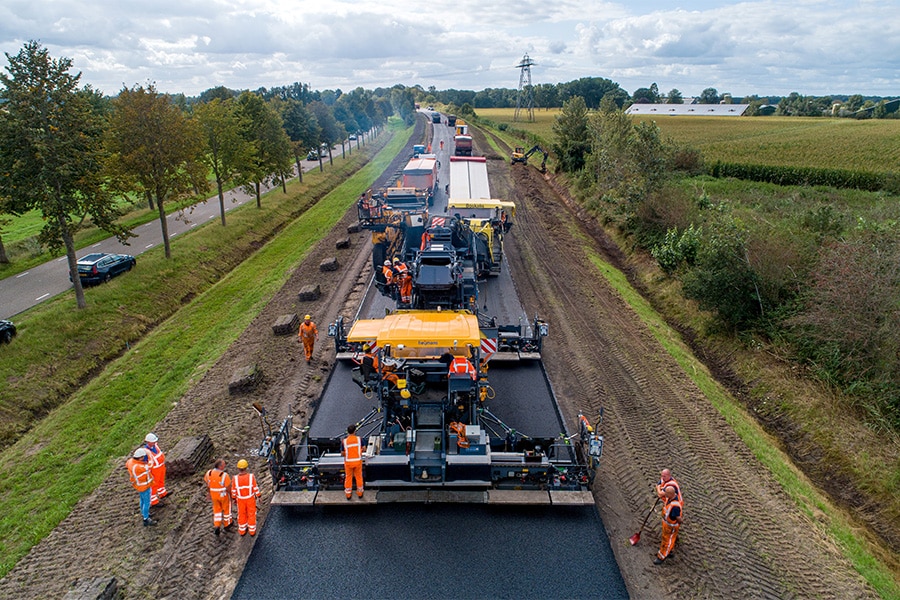
Outline program
Chairman Nathan de Groot will open the conference at 10 a.m. Afterwards, Stefan de Munck (chairman of the Vakgroep Bitumineuze Werken) and Ludo Hennissen (leader of the transition path for sustainable road paving), among others, will take visitors through the project to phase out hot-mix asphalt. During the 2022 Asphalt Day, the Vakgroep Bitumineuze Werken presented that its members will stop producing hot-mix asphalt by January 1, 2025. The transition path has picked this up and joint work is now underway to realize this goal. They will also look ahead to the next steps that need to be taken to make serious strides in making the sector more sustainable by 20230. This is the prelude to an interactive panel discussion with the audience, clients and contractors.
After lunch, there will be two blocks. The first block will address projects including compaction rate & hollow space and asphalt grip. The second block will include emission-free equipment and the 'you're going to make it' campaign. As usual, the Asphalt Day will conclude with networking drinks on the exhibition floor. You can register for the Asphalt Day 2023 through the website of Bouwend Nederland.

